|
A few weeks ago I was walking with the terriers and had almost reached our driveway when I stepped to the side of the road to take a picture. Looking up, I saw Eloise had passed me and was trotting away from me down the road. Her expression made my heart sink a little. Even though I was behind her, I recognized the way she held her head, the set of her ears, the quickening of her step. I had seen it before but not from her. She had lost me. I couldn't have been more than 20 feet behind her but realized I was standing in shadow, off the side of the road. She had gone right past me without seeing me and she was now trotting quickly with her senses straining to locate me. She turned into our driveway, still searching. I quickened my own pace to catch up but did not want to call her in case her hearing orientation betrayed her and she thought I was somewhere I wasn't. I walked rapidly to the end of the driveway before calling her name. Instantly she turned around and her body language showed relief. The tension went out of her face as her ears flattened back when she saw me. She broke into a happy canter and raced toward me, leaping up when she reached me. Another sign that my dear little girl had become a senior dog. Don't get me wrong: I love senior dogs. But it's bittersweet to fall that much more in love with them during this time because there is no other stage to follow. I can hope that she has years of a happy life left but along with other signs I'd seen, it was time to face the music. I need to plan some transitions to keep her safe and happy in those years. Like not putting her in a position where she loses me on a walk. This was the second time it had happened but I didn't recognize it the first time. I was astonished in May, hiking with her on some family property, when I looked around and didn't see her close. Instead she was 75 yards off the path and again, trotting quickly the other direction. She did not respond to my call and Eloise does not ignore recalls unless her head is down a hole. At first I thought she must have been on the trail of a critter. Thankfully, something turned her around (possibly me crashing through the brush and calling louder and louder?) and she came happily back. That day I had flashbacks of when my Beetle dog had disappeared into the woods for three days at the age of 14. He had not run away. He was lost and I thought forever. So it felt like a miracle when he trotted into the barn with his jaunty but arthritic little steps after three days. I had felt the panic of that time when Eloise was so far away from me in the woods. Some would say I should have my dogs on leash all the time so that cannot happen, as well as other potential disasters of off-leash dogs. But we have so much open land available to us- land with no other dogs or people to cause problems and that is just perfect for dogs to explore and climb and sniff. I work hard to train my dogs to a really solid recall and to keep an eye on ME so we don't get separated. With those precursors, I think they deserve and earn the freedom to be a dog off leash. But it is Eloise's inability to keep an eye on me that is failing. It's not a training problem; her senses are failing her. That day on the road she must have passed within six feet of me before getting ahead. Whatever magical combinations of canine senses would otherwise have told her where I was had failed her. There was one other incident recently. That time it was in the house. I was in the corner of the kitchen when, for some reason, she woke up on my bed in the other room and came to find me. I saw her come into the room, looking toward the table where I often sit at the computer. I saw her look around, her gaze sliding right over me toward the door before swinging back and landing on me standing there. Again, the relief as her muscles, from face to tail relaxed and she wiggled her way to me. More memories of Beetle washed over me. 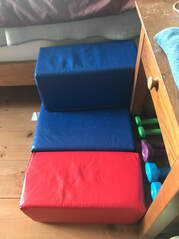 I knew, of course, that her body was aging. She started being bothered by a front leg after jumping off the bed. I thought it was something we could fix but nothing seemed to help. So my first accommodation was to give her a way to get off the bed without such a big jump. They make stairs for that purpose but with a small bedroom made smaller by numerous dog beds, I didn't want to add another piece of furniture. I bought some large foam blocks made for kids and stacked them next to the bed, wedging them between it and the night stand. They're soft, and easy to move. It was a quick training session to get her to go up and down, but a longer time to get her to actually use them when I wasn't there. I think she figured out it was easier on her leg and yesterday she actually barked at me from the bedroom for help getting down when I'd picked them up the blocks for the Roomba to work. 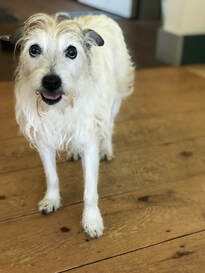 The poor sore foot after a long walk. The poor sore foot after a long walk. Long before I was ready to eliminate lengthy walks, her vet was encouraging it. Again, I knew the routine from my experiences with Beetle: several short walks a day rather than any long ones. But you can't go as many places on a short walk! I have now purchased a back pack she can ride in and feel a bit like a crazy dog lady. Training is in progress for that so that we can go further and she can hitch a ride back home. To prevent her from losing me on walks, I'll need to be more attentive. In new places, I'll put her on a long rope. Thankfully she still loves a leash from her days before living with us when a leash meant outside. I'll also start transitioning her to the cues I used for Beetle when his vision and hearing started to go: stomping my foot on the floor or ground to get his attention (followed by a treat of course), and then waving my arms above my head when he couldn't hear my recalls and his vision didn't detect smaller detail. Beetle had separation anxiety issues which worsened significantly with age, as they tend to do. I've never seen that with Eloise and I hope not to. She loves to go in the car with me so I take the opportunity to have that be adventures we share, rather than long walks. But she also seems content to stay on my bed at other times. 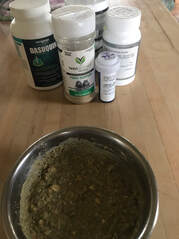 She's getting regular meds now: joint supplements, an NSAID, and Proin for bladder leakage. I line them up every morning to add to her breakfast and set out the ones for the evening. I may have to start separating her from Wilder for meals since they sometimes swap kongs. I want to make sure the right dog is getting the meds and I am able to administer almost everything that way now. For training, I need to get some empty gel caps and start training her to take them (with peanut butter) so that if more or bigger pills become necessary, she'll take them without stress. As I hope you can see, training is a very big part of the picture: past, present, and future. As adjustments are made, I want to be sure we are ready ahead of time if possible, and having Beetle teach me so much will benefit Eloise as I plan for her golden years. 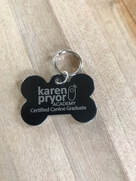 Eloise is my KPA dog. For those of you who know what that means, you understand my heart is in pieces to see this transition. For those of you who don't know what that means, Eloise was the dog who took me through my Karen Pryor Academy training program. Thanks to her, I am a Certified Training Partner. She has more training under her belt than any dog I've had, before or since. I began the program a few short months after getting her from the rescue and we learned together- so much. All dogs are special, but the world changed for me when Eloise and I graduated from KPA. KPA dogs get a special tag but since Eloise doesn't wear a collar (they can be an entrapment danger for farm dogs), she's never worn hers. I think I'll put it on whatever I use when she goes back on a long rope. I am so very grateful for that training in my planning now. For one thing, Eloise knows all about choice. And I know about cues. So when I go out to work with horses mid morning or afternoon, I can poke my head in the bedroom and say, "I'm going out". Sometimes she perks up and comes down her steps to follow me.
There will be times when she wants to come with me and can't. Wilder still loves and needs his long walks, as do I. So we have routines: I make sure she's had outside time, sniffing and hunting, so she's ready for a nap before I go for a walk with Wilder. I leave her with reinforcement in the form of chews when we go. It doesn't make it easy, but at least easier. This spring I attended Clicker Expo Live (the irony of Live! now meaning virtual) and one of the talks I really valued was "Aged and Engaged" by Lori Stevens. It's a wonderful combination of training and body work, and I got right to playing and Eloise loved it. When summer comes, life gets busy and things fall off my plate but I am committing to getting that back on this month, and sticking to it. As a KPA dog, she LOVES training, (ok, all dogs do when trained with positive reinforcement), and so that will definitely be a part of her life going forward. Whether it's training specific to her senior needs, or training fun things, I know that is a way to put fun into her days as other activities get curtailed.
4 Comments
Scooter, too, loses me during walks. But he doesn't care where I am. He does what he wants, (while I protectively watch over him) then he runs back to the house, sure that I'll always be there.
Reply
Kara
8/3/2021 07:12:39 pm
what a great article, so many things i relate to with watching my sweet senior boy in this stage of his life. Those subtle and not so subtle changes. Frankie has a medicine cabinet of his gown with 4 mediations (2 he gets twice a day.) He sometimes barks at the wrong chair thinking i’m sitting there eating. of course i guide him over to the correct chair to bark at me there. Every day I love him even more than yesterday.
Reply
Diane Bean Roumeliotis
9/2/2021 07:45:00 am
Hi Jane, enjoyed this article very much. I can so relate to this with my senior being 14 this year.
Reply
Leave a Reply. |
what's this?Occasionally, I have thoughts I want to share. This may be inspired by a success, a struggle, or a conversation. Thanks for reading! Archives
August 2021
Categories |
Photos from miguel.discart, shixart1985 (CC BY 2.0), Günter Hentschel, skua47, Günter Hentschel, shixart1985

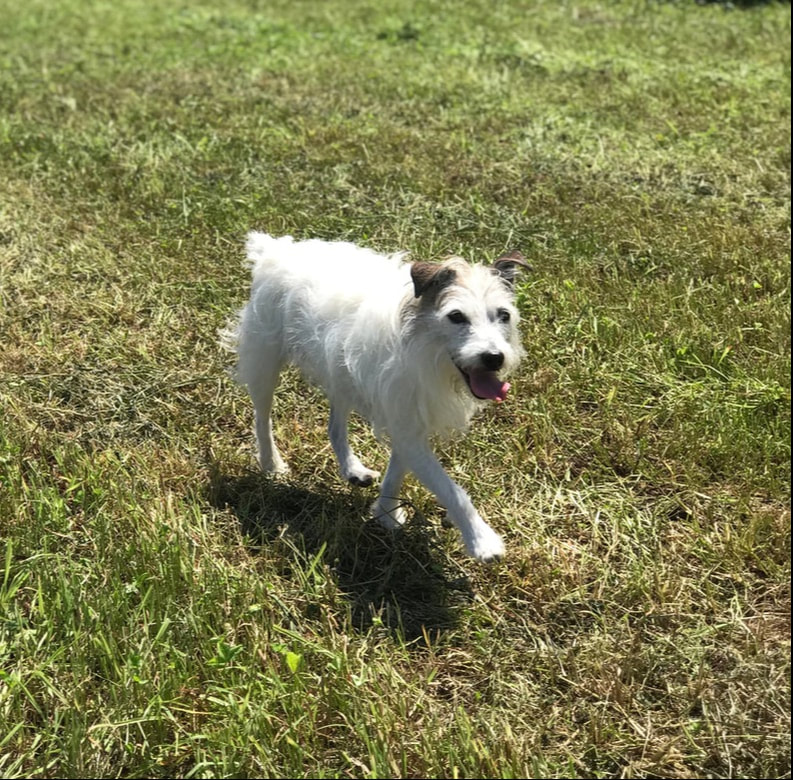
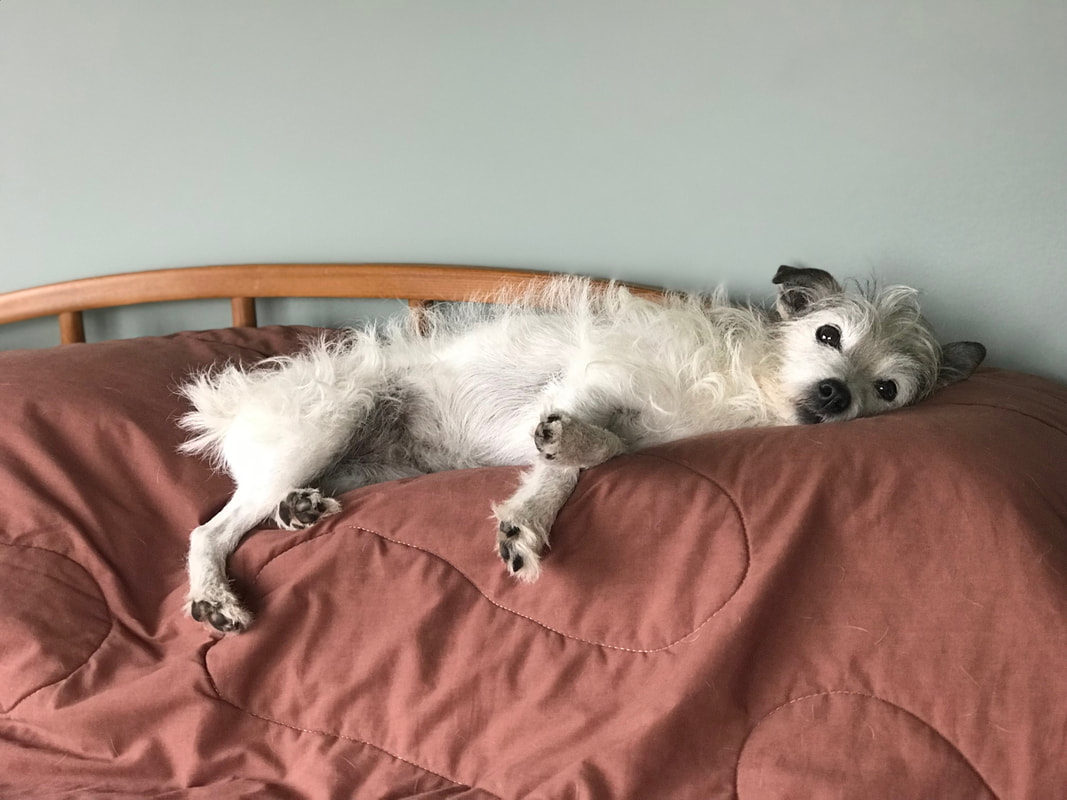
 RSS Feed
RSS Feed